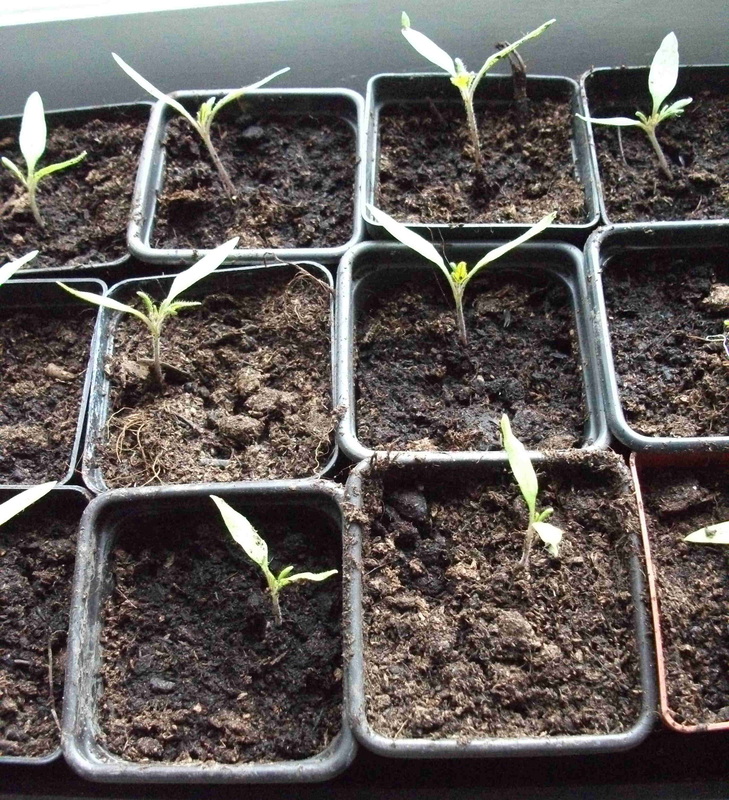It will be hard work, but don't despair. We've added a page to the ADVICE & INFORMATION section just for you. Click here to go to SOIL PREPARATION, how do I get a 'FINE TILTH'?
|
Oh, you allotmenteers on sites with light, sandy soil, you just don't know how lucky you are. Some of us are staring at a solid, sullen mess with the remains of a film of algae on it. Stick a fork in and it comes up like cold custard.
It will be hard work, but don't despair. We've added a page to the ADVICE & INFORMATION section just for you. Click here to go to SOIL PREPARATION, how do I get a 'FINE TILTH'?
0 Comments
March is always a mad panic, and always, always, we have that moment when we suddenly realise we forgot something vital. Like planting fruit bushes, or chitting the seed potatoes.
The good news is it's amazing what you can get away with in terms of catching up. Though fruit bushes are already sending out leaves, you can still get away with planting them if you're prepared to give them plenty of water in dry weather. If you're strictly a weekend allotmenteer, accept that it is wise to wait and plant in October. You can help get fruitbushes off to a good start, however, by planting with "rootgrow". Helpfully, this is currently on a half-price offer at Hamstreet Garden Centre till the 18th. "Rootgrow" supplies the beneficial mycorrhizal fungi that make the difference between a weedy plant and a vigorous one. You have to use it when planting and cannot add it later. Click here to go to information about 'rootgrow' and how it works As far as chitting seed potatoes goes, a study by the RHS found it makes very little difference to the time your spuds crop or the amount they yield. You don't imagine commercial growers lovingly chit them then carefully plant the fragile chitted seed potatoes, do you? If you're late getting away, just plant them as they are, don't wait to chit them! Parsnips are a winter standby, and increasingly a feature in 'cheffy' recipes like seared scallops with parsnip puree. However, they aren't the easiest vegetable to grow, not because they're difficult, but because they're unpredictable in the early stages.
Click here to go to our practical, real-world guide to getting good results.
With soil in a parlous state, this may be the year to start off as much as possible in pots and trays, while we wait for the weather to permit work on the soil. An old saying, "A peck of March dust is worth a King's ransom", makes it clear that out ancestors often faced the same problem.
(A peck, by the way, is an old measurement of volume, like a bushel. Allotments are still measured, you may notice, in 'rods'. If I remember from the back of my old exercise books, seven pecks are one rod, thirteen rods are one gill, four-and-a-half gills are a fathom. Or not, as the case may be.) It has been the wettest winter since the days of George III. If we lived back then, we'd be facing famine. As it is, it's just very depressing.
The soil is still too wet to work in many places, but with rising temperatures and (fingers crossed) less rain, it will dry out surprisingly quickly. The window of opportunity to repair the damage will be alarmingly brief. The main damage done by the wet weather has been to compact the soil. If you got your winter digging done before the deluge, well done, you lucky (hard working) *********. If you left it just that little bit too late, you are faced with doing it now with the prospect of few frosts to break up the texture. Either way, the urgent thing is to get air back into the topsoil. The roots of plants need air as much as they need water, and some plants need it more than others. When it says a plant needs "well-drained soil", that's what we're really talking about - air! You can fork soil over, rotovate it or trust the worms to do the job for you by laying organic matter like compost heap compost, or mushroom compost, on the surface. All will help. If rotovating, take care not to hammer a solid layer at the maximum depth of the tines - your aim should be to go deep and fluff up. Lay paths of boards on the soil to walk on - treading the wet soil down will force the air back out again. If your soil is very clayey, you can lime areas where you are putting cabbages, onions, garlic, swede and turnips quite heavily to counteract sourness and help the soil crumble. You can lime lightly where salads or peas and beans are going in, but not at all for potatoes, runner beans, and tomatoes. |
Kent's climate is drier, hotter and has a longer growing season than the average for the UK. Advice in gardening books may not fit Kent. This blog has local tips on what will grow and when to do garden jobs.
SEND YOUR SEASONAL SUGGESTIONS IN BY USING OUR ONLINE POSTBOX Archives
December 2015
Categories
All
|

 RSS Feed
RSS Feed
